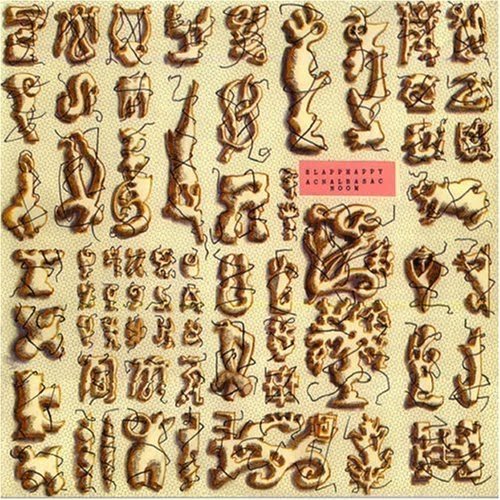Acnalbasac Noom (Casablanca Moon backwards) is one of many lost European albums recorded during the 70s and then rejected by a record label for its lack of commercial appeal. In the early 70s with Faust, Polydor Germany was somehow a safe space for avant-garde musicians who were part of the burgeoning German creative community. Anthony Moore, co-creator of the group Slapp Happy, had moved from London to Germany precisely with the hopes of joining this community. While Polydor Germany put out his first two minimalistic avant-garde albums, they rejected a third album he’d recorded because it wasn’t commercial enough. So instead he suggested a commercially friendly pop-oriented project with one of his friends/bandmates from London, Peter Blegvad, who had been visiting Moore in Germany at the time.
Moore’s German girlfriend at the time, singer Dagmar Krause, wasn’t originally supposed to sing on the album. But when Blegvad started doing the vocals, producer Uwe Nettelbeck (the founder of Faust) asked Krause to take over the vocals for the project. With Krause’s cabaret pop voice at the forefront, Blegvad and Moore, two young musicians who strayed toward complex experimental compositions, tried to approach the Acnalbasac Noom album as a primitive type of pop music or “naive rock.” Polydor Germany still refused to release it. Even though it was a collection of catchy art-rocker takes on pop music, the label still didn’t think it would sell. So the band moved back to London to put it out with the then-upstart Virgin Records who’d also corralled Faust from Polydor Germany. Virgin agreed to put it out only if they rerecorded the album with new musicians and more commercial production. So the rerecorded version of Casablanca Moon was released while the original sessions weren’t released until 1980 by Recommended Records.
The album itself presents a diverse collection of musical styles — cabaret, tango, chanson, fuzzy psych, lounge, cabaret. The odd lyrics stem from the band’s interests in semiotics, surrealism, and Weillian expressionism. For an example, the title track is a tango tune about a spy being murdered.
“Half Way There” is my favorite track, fitting more into the loungier side of Slapp Happy’s catalog. Elsewhere “Me and Parvati” channels Harry Nilsson, fully embracing 70s pop while the Virgin version of the song ended up much darker. “Michelangelo” has a whimsical melody and a powerhouse organ solo. Standout “The Drum” has the best of Blegvad’s fuzzy psych-rock guitar work. Yet it still retains the feel of a classic rock song filtered through the lens of experimental musicians. Of course, the Virgin version of the song butchered the feel of the original session. “Charlie and Charlie” has to be one of the weirder pop songs about a man with a multiple personality disorder. “Slow Moon’s Rose” is another example of the band’s careful adoration of pop music and their dissection of it. Wilting vocals haunt a descending riff for the whole song but there’s always some sense of dissonance working through the guitar parts and the tambourine accompaniment. Around the one-minute mark, the descending melody always reminds me of the Twin Peaks theme song’s much moodier descent.
I love Acnalbasac Noom, the original recordings, because it’s a much better and more interesting record than the rerecorded version of the album that came out on Virgin years later. Slapp Happy embraced pop much better as a trio with minimal direction or interference from a record label. When they rerecorded it, the primitive rock aspect that Blegvad, Moore, and Krause intended was lost and replaced by a slower, moodier, dreamier cabaret-pop sound. Looking around the internet to find more information about the original sessions, it’s been kind of amazing that in the end the people, not the record labels, have championed the original sessions as superior.
